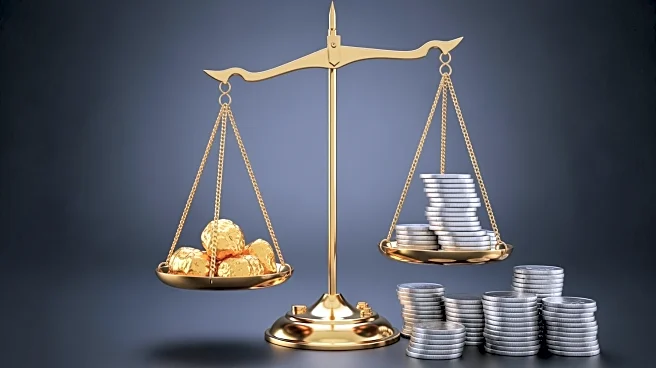What's Happening?
California is considering several wealth tax proposals for the 2026 ballot, aimed at addressing budget challenges and funding public services. These measures include a one-time tax on billionaires and an extension
of taxes on high earners. Advocates argue that the wealthy should contribute more to resolve fiscal issues, while opponents, including the Howard Jarvis Taxpayers Association, resist these initiatives. The proposals reflect ongoing debates about economic equity and the role of taxation in supporting state programs.
Why It's Important?
The wealth tax proposals could significantly impact California's economic landscape, influencing how resources are allocated and addressing disparities in wealth distribution. If passed, these measures could set a precedent for other states considering similar approaches to taxation. The debate highlights tensions between progressive taxation advocates and traditional anti-tax groups, with implications for public policy and economic equity. The outcome of these proposals will affect funding for essential services like healthcare and education, shaping the state's fiscal future.
What's Next?
As the 2026 ballot approaches, stakeholders will intensify efforts to sway public opinion and secure support for their respective positions. Advocacy groups will likely increase outreach and campaigning to highlight the benefits or drawbacks of the wealth tax measures. The political environment in California will see heightened activity as proponents and opponents mobilize resources to influence voter decisions. The success or failure of these proposals will depend on public sentiment and the effectiveness of campaign strategies.









